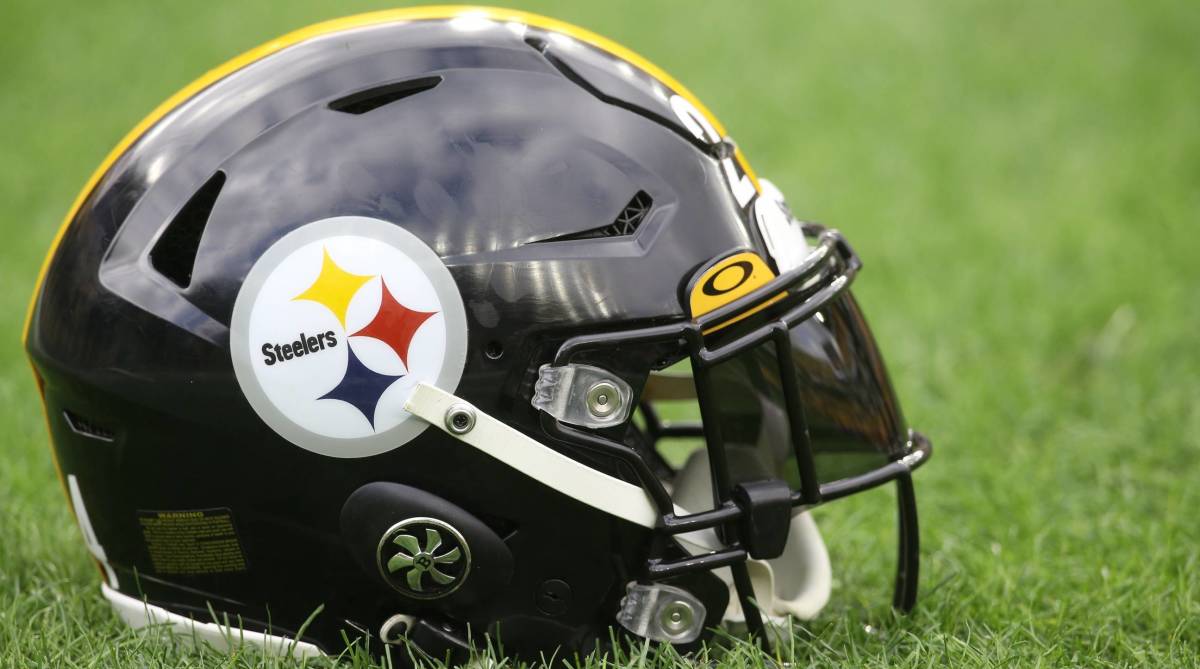In an off-season maneuver that’s sparked a whirlwind of speculation and intrigue, the Pittsburgh Steelers made headlines by trading wide receiver Diontae Johnson to the Carolina Panthers—a move that not only reshaped the team’s offensive lineup but also gave Kansas City Chiefs quarterback Patrick Mahomes an unexpected reason to hold a grudge.

Pittsburgh Steelers: The Deal That Shocked the NFL
The transaction, which saw Johnson moving to the NFC’s Carolina Panthers in exchange for cornerback Donte Jackson and a Day 3 draft pick, left fans and analysts scratching their heads. Johnson, known for his exceptional route-running abilities and productivity, was considered a prime candidate to bolster the Chiefs’ receiving corps.
His contract, deemed affordable in the current market, made the trade seem like a golden opportunity for Kansas City. Yet, the Steelers opted for a different route, sending Johnson to the Panthers in what many have labeled a “trade robbery.”

The Pittsburgh Steelers’ decision to trade Johnson away from the AFC, especially to a team like the Panthers who are in the process of rebuilding, has raised eyebrows. This strategic move prevented the reigning Super Bowl champions, the Chiefs, from acquiring a high-caliber weapon for Mahomes.
Mike Garafolo of NFL Network emphasized that while the Chiefs showed genuine interest in Johnson, Pittsburgh was adamant about not strengthening a direct AFC competitor.
A Strategic Gamble with Long-term Implications
Pittsburgh Steelers’s strategy may have immediate benefits—securing a talented cornerback and a draft pick—yet it’s the potential long-term ramifications that have the sports world buzzing.
By denying the Chiefs a player of Johnson’s caliber, the Steelers not only altered the AFC’s competitive landscape but also added fuel to the already fierce rivalry between the two teams.
Mood seeing all these WRs going to other teams. #Steelers #NFL pic.twitter.com/bDyxy43xcH
— Blitzburgh (@Blitz_Burgh) March 15, 2024
The trade has further implications for the Chiefs’ off-season strategy. With Johnson off the table, Kansas City’s search for a top-tier wide receiver continues, with options like Odell Beckham Jr., Mike Williams, and Hunter Renfrow still available. The Chiefs, constrained by salary cap limitations, face the challenge of enhancing their roster while managing financial commitments to key players.
A Missed Opportunity for an Offensive Juggernaut
For Patrick Mahomes and the Chiefs, Johnson could have been a transformative addition. His ability to create separation and execute precise routes would have complemented Mahomes’ playmaking skills, potentially elevating Kansas City’s offense to new heights.
The Pittsburgh Steelers’ refusal to trade Johnson within the AFC, especially to a contender like the Chiefs, speaks volumes about their strategic priorities and the competitive dynamics within the league.

As the NFL landscape continues to evolve, the Diontae Johnson trade will be remembered as a pivotal moment that showcased the intricate balance between short-term gains and long-term strategy. While the Steelers may have secured immediate defensive reinforcements, they’ve also ignited a narrative that could inspire the Chiefs to seek revenge on the field.
In the high-stakes world of NFL trades and team dynamics, the Pittsburgh Steelers’ move is a bold gamble—one that could either be seen as a masterstroke or a misstep in the annals of sports history.
Only time will tell if the decision to send Johnson to the Panthers instead of the Chiefs will pay off, but one thing is certain: the drama and intrigue of NFL off-season moves continue to captivate fans and analysts alike.

Source: Fan Sided









